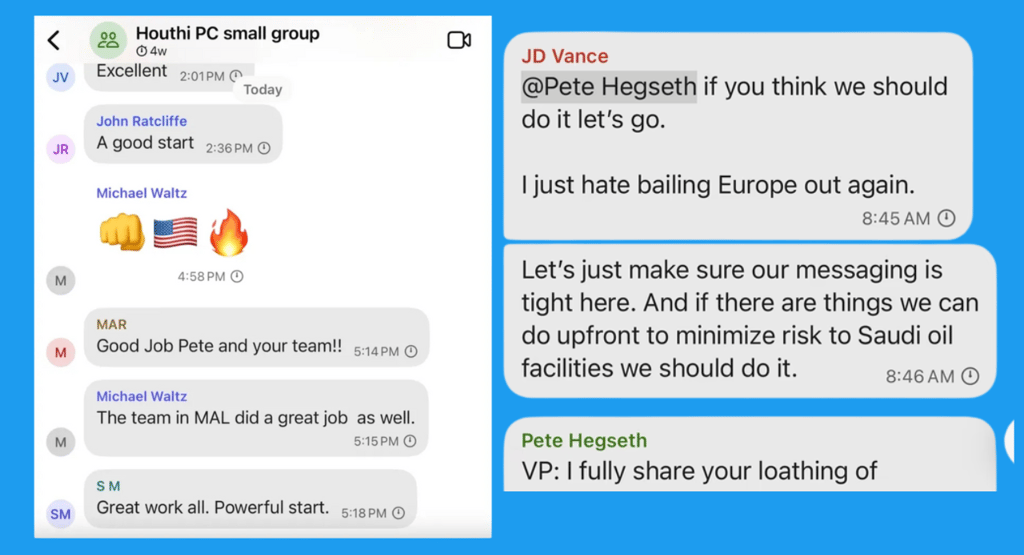Signal-Gate: Trump's Team Accidentally Leaks Top-Secret War Plans to Journalist!
Trump administration inadvertently shared classified war plans with journalist, Jeffrey Goldberg, editor-in-chief of The Atlantic, through a Signal group chat. The incident, which occurred on March 15, 2025, has sent shockwaves through Washington and raised serious questions about the handling of sensitive information at the highest levels of government.
POLITICSINTERNATIONAL
3/22/20252 min read


In a stunning breach of national security protocols, top officials in the Trump administration inadvertently shared classified war plans with a journalist through a Signal group chat. The incident, which occurred on March 15, 2025, has sent shockwaves through Washington and raised serious questions about the handling of sensitive information at the highest levels of government.
The Leak
Jeffrey Goldberg, editor-in-chief of The Atlantic, found himself unexpectedly added to a Signal group chat named "Houthi PC small group" on March 11. The chat included high-ranking officials such as Vice President JD Vance, Secretary of Defense Pete Hegseth, and National Security Advisor Mike Waltz.
On March 15, at 11:44 AM, just hours before the U.S. launched airstrikes against Houthi targets in Yemen, Goldberg received detailed information in the group chat about the impending attack. The shared content included operational specifics, target information, weapons to be deployed, and attack sequencing.
Official Response
The National Security Council has confirmed the authenticity of the text chain and stated that they are investigating how a journalist's number was added to the group. President Trump, when asked about the incident, claimed he was unaware of the situation, stating, "I don't know anything about it. I'm not a big fan of The Atlantic".
Security Implications
This breach has raised serious concerns about operational security and the use of messaging apps for sharing classified information. While government officials have used Signal for organizational correspondence, it is not classified and can be hacked. The incident coincides with Defense Secretary Hegseth's office announcing a crackdown on leaks of sensitive information.
Political Fallout
Democratic lawmakers have swiftly condemned the error, calling it a significant breach of national security and a legal infraction that necessitates a Congressional investigation. Representative Jim Himes, ranking member on the House Intelligence Committee, expressed horror at the "brazen violation of laws and regulations that exist to protect national security".
Legal Implications
Legal experts suggest that establishing the group on Signal may violate the Espionage Act. The incident draws parallels to previous controversies, such as Hillary Clinton's use of a private email server during her tenure as Secretary of State.
International Concerns
The leak could potentially make allies wary of sharing intelligence with the United States. Additionally, the chat reportedly included comments from Defense Secretary Hegseth labeling European allies as "freeloaders", which may further strain international relations.
As this story continues to unfold, it serves as a stark reminder of the critical importance of proper information security practices in government operations. The repercussions of this breach are likely to reverberate through the political landscape for some time to come.


